ECHR condemns Pussy Riot and Anna Politkovskaya cases
- Published
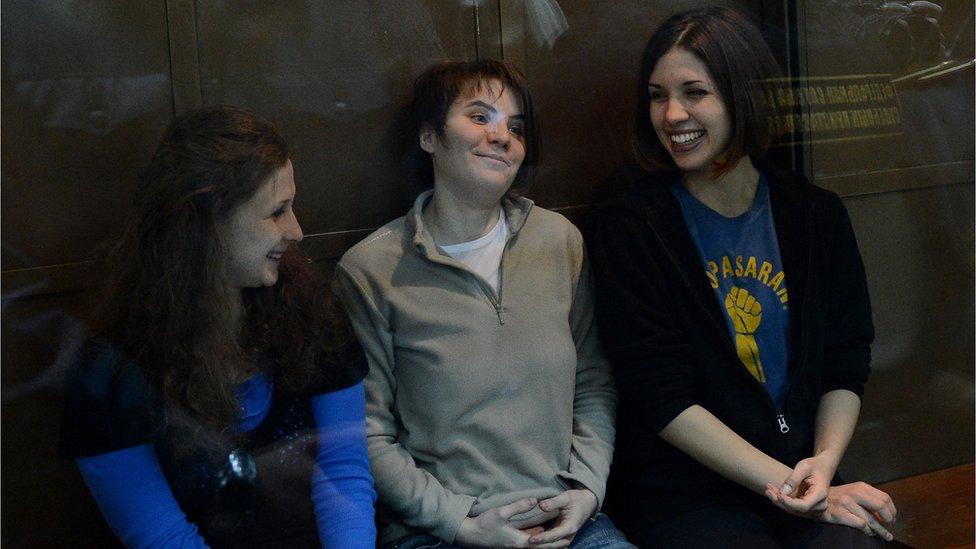
Three of the band members were arrested and convicted for the cathedral performance in 2012
The European Court of Human Rights (ECHR) has condemned Russia for its handling of two high-profile cases.
It said Russia had violated five articles of the human rights convention in its arrest and conviction of Pussy Riot members in 2012.
Three women from the activist group were arrested after performing a protest song in a Moscow cathedral.
Separately, the ECHR also heavily criticised the investigation into journalist Anna Politkovskaya's murder.
Politkovskaya was shot dead in a lift in her block of flats in 2006. Five men were found guilty of her murder in 2014, although it is still not known who commissioned the assassination.
The investigative reporter was a vocal critic of Russia's war in Chechnya, and of Russian President Vladimir Putin.
Russia had failed to "take adequate investigatory steps" to find who commissioned the murder, external, violating Article 2 of the convention, the court said.
In 2015, Russia's parliament passed a law allowing it to overrule judgements from the ECHR after the court ruled against the country for state spying.
'Multiple violations'
In the Pussy Riot case, two band members served 16 months in prison after their conviction.
Formed in 2011, the group has a varying membership of women who support feminism and agitate against President Putin and the state.
On Monday, Russia jailed four members of the band for disrupting the World Cup Final with a pitch invasion.

One of the pitch invaders high-fived France's Mbappé
The court ruled that Russia had committed "multiple violations" of the European Convention, external during the three band members' arrests and sentencing in 2012.
The ECHR highlighted the band's "overcrowded conditions" when being transported to and from court, and the "humiliation" of their exposure in a glass dock during the trial as a breach of Article 3 of the convention.
Pussy Riot's extended detention before trial and lack of access to their lawyers also broke the convention, it added.
Moreover, the ECHR said the Russian court twice violated Article 10 - freedom of expression - by banning access to the group's videos online and for condemning the group's conduct and clothing, rather than examining the content of their protest song, during the trial.
Judge Marina Syrova: "These three plus others... plotted together to undermine civil order, motivated by religious hatred"
Russia arrested Maria Alyokhina, Nadezhda Tolokonnikova and Yekaterina Samutsevich in February 2012 after they performed their song Punk Prayer - Virgin Mary, Drive Putin Away in Moscow's Christ the Saviour Cathedral.
Guards managed to remove the band after only about a minute of the song.
During their conviction, the judge said the three had committed "hooliganism" and showed "a complete lack of respect" for Orthodox believers.
All three were sentenced to two years in prison. Ms Alyokhina and Ms Tolokonnikova served 16 months, while Ms Samutsevich was released and had her sentence suspended after seven months in prison.
After their release, Pussy Riot publicly disowned Ms Alyokhina and Ms Tolokonnikova, saying the pair had forgotten the "aspirations and ideals of our group".
- Published17 August 2012
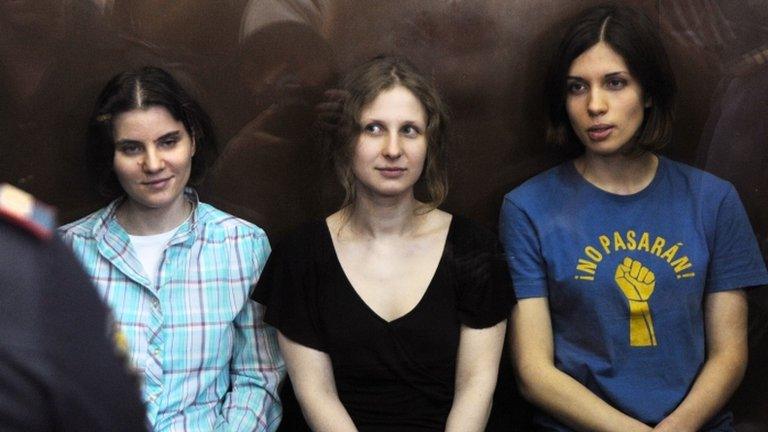
- Published2 October 2017
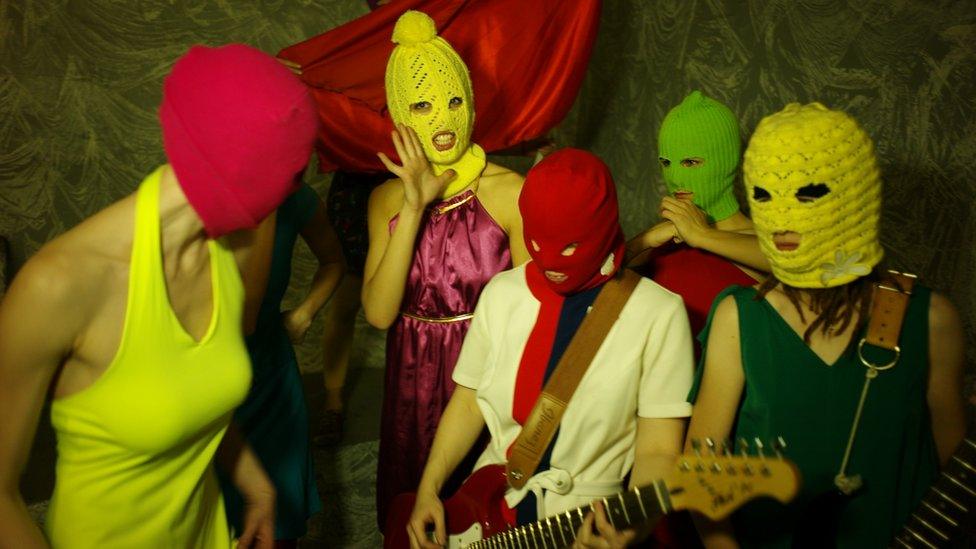
- Published23 August 2017
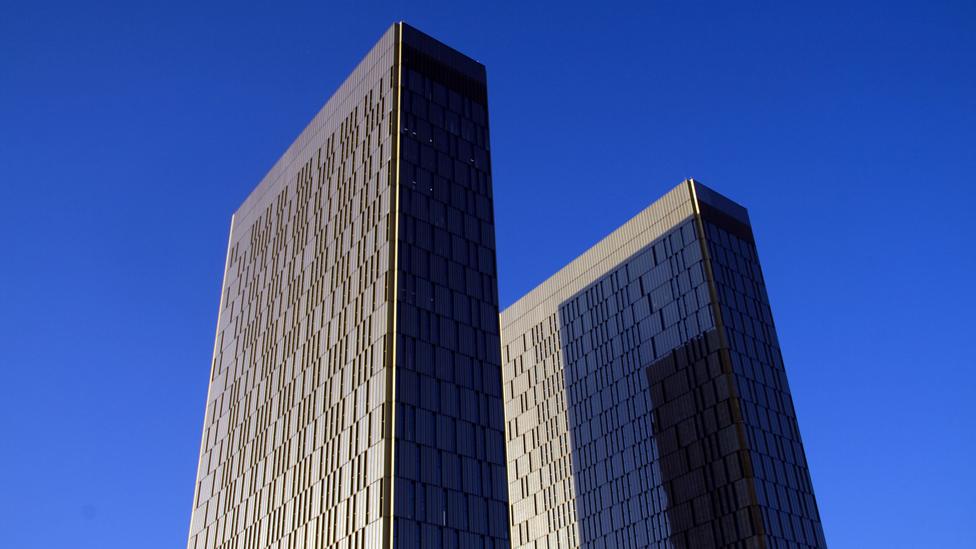
- Published4 December 2015
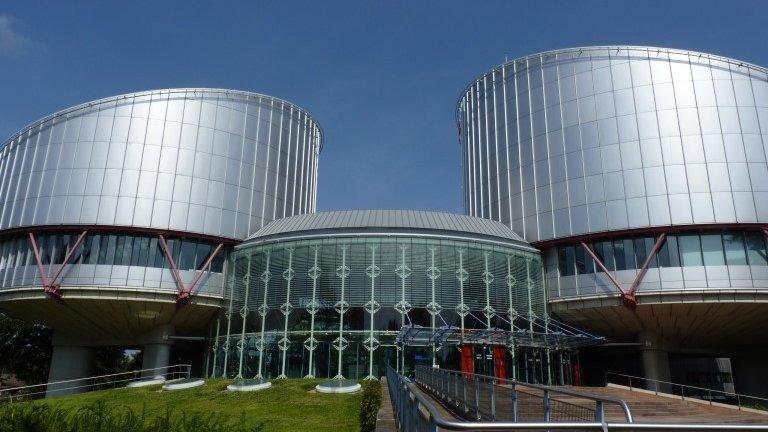
- Published2 December 2017
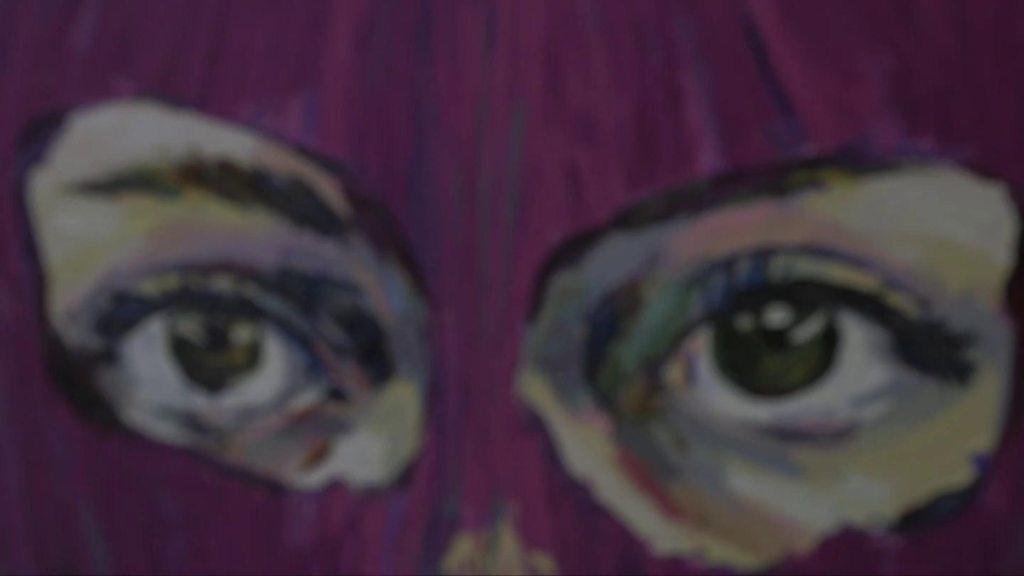
- Published6 February 2014
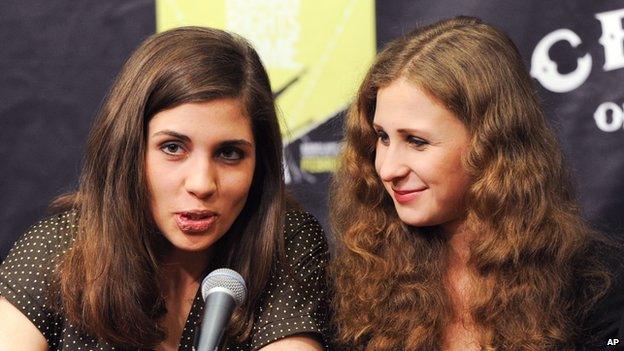
- Published9 June 2014
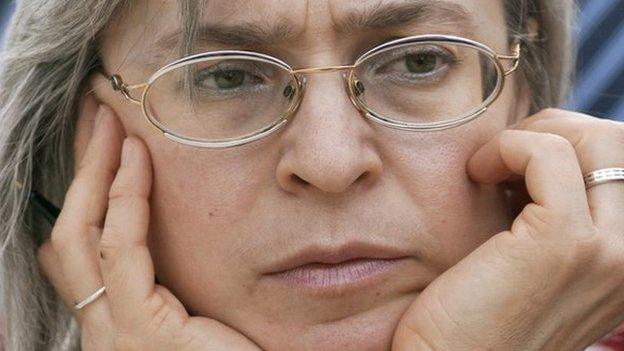
- Published20 May 2014
